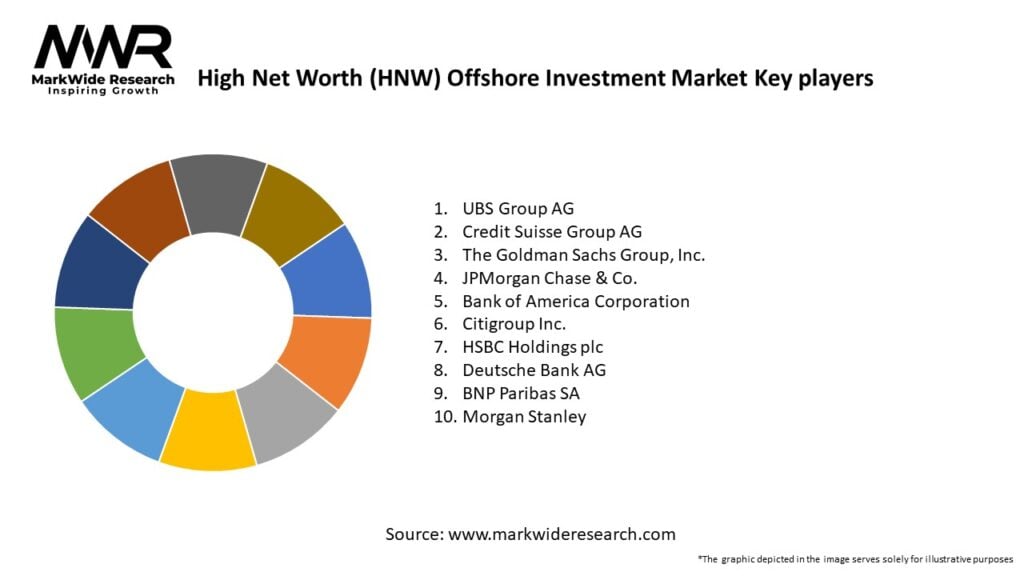The Crucial Guide to Offshore Investment: Types and Their Advantages
Offshore investment offers an engaging array of options, each customized to meet certain monetary goals and risk hungers. From the personal privacy paid for by overseas bank accounts to the security of actual estate holdings, the landscape is abundant with chances for both possession defense and growth.
Offshore Financial Institution Accounts
Offshore checking account have become progressively prominent amongst financiers looking for to diversify their economic profiles and safeguard their possessions. These accounts are normally developed in jurisdictions outside the investor's home country, using various benefits that can improve monetary protection and personal privacy.
One key advantage of overseas financial institution accounts is asset security. By putting funds in a foreign institution, capitalists can secure their possessions from prospective political or economic instability in their home country. Furthermore, overseas banking commonly gives higher confidentiality, allowing people to handle their wide range without attracting undesirable attention.
In addition, offshore bank accounts may use favorable tax obligation advantages, depending upon the territory. While it is vital to abide by tax obligation regulations in one's home nation, certain overseas locations offer tax obligation motivations to foreign financiers, which can cause increased returns on investments.
Additionally, these accounts often offer accessibility to worldwide financial markets, making it possible for investors to discover diverse investment possibilities that might not be available locally. Overall, overseas savings account work as a strategic tool for asset security, privacy, and financial growth in an increasingly globalized economy.
Realty Investments
The allure of actual estate investments remains to expand among people seeking to diversify their portfolios and secure long-term monetary gains. Offshore real estate provides unique benefits, such as desirable tax obligation programs, asset protection, and the potential for capital appreciation. Capitalists can leverage residential or commercial properties in emerging markets or steady economic climates, permitting access to a larger series of investment chances.
One key advantage of offshore genuine estate is the ability to protect properties from residential economic variations or political instability. Home ownership in a foreign jurisdiction can give a layer of safety and privacy, commonly attracting high-net-worth people. Moreover, buying rental residential or commercial properties can produce regular income streams, boosting total economic stability.

Mutual Funds and ETFs
Buying mutual funds and exchange-traded funds (ETFs) offers an available opportunity for individuals seeking to expand their financial investment portfolios while reducing dangers related to direct supply acquisitions. Both investment lorries allow capitalists to pool their sources, allowing them to spend in a broader variety of properties than they could manage separately.
Common funds are commonly handled by specialist fund supervisors that actively select securities based on the fund's financial investment purpose. Offshore Investment. This management can improve the potential for returns, though it frequently features higher charges. In contrast, ETFs are usually passively managed and track a certain index, offering reduced expense proportions and better transparency. They can be traded throughout the day on stock exchanges, including flexibility for investors.

Both common funds and ETFs supply tax benefits in an overseas context. Common funds and ETFs offer as efficient tools for constructing wide range while browsing the complexities of offshore investment possibilities.
Offshore Trust Funds
For capitalists seeking to even more improve their asset protection and estate planning techniques, offshore depends on present a compelling alternative. These legal entities allow individuals to transfer possessions to a count on a territory outside their home country, providing a range of advantages that can secure riches and assist in smooth succession preparation.
Among the key advantages of overseas depends on is the level of privacy they supply. By placing properties in an overseas depend on, capitalists can protect their wealth from public analysis, thus shielding their privacy. Additionally, overseas trusts can provide robust protection versus lawful insurance claims and prospective financial institutions, efficiently shielding properties from threats related to litigation or bankruptcy.
Offshore counts on also enable flexible estate planning choices. Capitalists can designate specific beneficiaries and describe the terms of possession distribution, guaranteeing that their desires are recognized after their death. This can be especially advantageous for people with facility family members characteristics or those desiring to provide for future generations.
Furthermore, many overseas territories have actually established beneficial legal structures created to support the establishment and management of Learn More Here trust funds, making them an eye-catching option for discerning financiers. Generally, offshore trusts function as a critical tool for those looking to boost their monetary tradition while mitigating possible dangers.
Tax Advantages and Considerations
While numerous capitalists are drawn to offshore depends on mainly for property security and estate planning, considerable tax advantages and considerations additionally merit focus. Offshore investment vehicles can use favorable tax obligation regimes, which might result in reduced tax obligations compared to onshore alternatives. Numerous territories offer tax obligation incentives such as tax obligation deferrals, reduced capital gains rates, and even total tax obligation exemptions on specific kinds of earnings.
Nonetheless, it is important to navigate the complicated landscape of international tax regulations. The Foreign Account Tax Obligation Compliance Act (FATCA) and various other regulations require united state homeowners and citizens to report foreign possessions, possibly leading to charges for non-compliance. In addition, the Irs (INTERNAL REVENUE SERVICE) might impose taxes on overseas income, negating some benefits otherwise effectively managed

Final Thought
In final thought, offshore financial investment choices present varied possibilities for possession estate, protection, and diversity preparation. Offshore savings account boost privacy, while realty financial investments offer security against domestic unpredictabilities. Mutual funds and ETFs promote expert management and danger reduction, and offshore trusts use privacy in estate preparation. Comprehending the one-of-a-kind advantages of each alternative is vital for optimizing monetary development and efficiently taking care of tax obligations in an increasingly interconnected worldwide economic situation.
Offshore genuine estate provides one-of-a-kind benefits, such as beneficial tax obligation regimes, property security, and Read Full Article the potential for capital recognition.While many capitalists are attracted to offshore counts on mostly for possession defense and estate preparation, substantial tax obligation benefits and considerations also merit attention. Offshore investment cars can provide positive tax obligation routines, which might result in lower tax obligations compared to onshore choices.Investors should additionally consider the influence of regional tax laws in the offshore jurisdiction, as these can vary substantially. Eventually, while offshore investments can yield significant tax obligation benefits, complete due persistance and tactical preparation are extremely important to optimize their capacity.